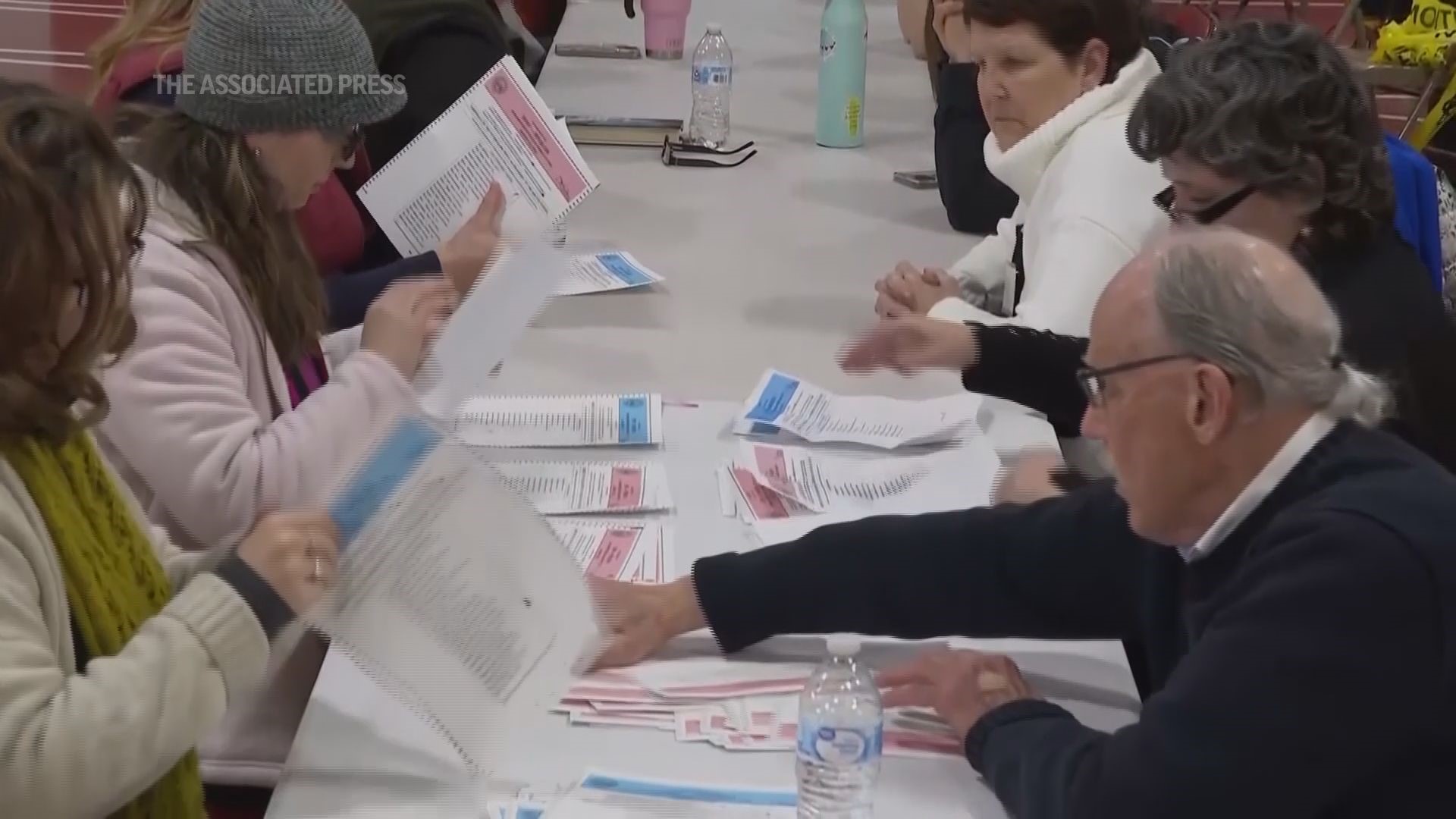WASHINGTON — After dominating Super Tuesday, President Joe Biden and former President Donald Trump are even closer to a rematch of their 2020 race.
While more than one-third of the total delegates in both the Republican and Democratic presidential primaries are awarded on Super Tuesday, Biden and Trump still can't officially clinch the nominations yet.
How many delegates does a candidate need to win the nomination?
A candidate must get the majority of their party's delegates to win the nomination.
For Republicans, a candidate needs at least 1,215 out of 2,429 delegates to win the nomination.
For Democrats, a candidate needs 1,968 out of about 3,900 delegates to win the nomination.
ELECTION RESULTS: 16 states voted on Super Tuesday. Here are the results.
When can Trump clinch the Republican nomination?
Heading into Super Tuesday, Trump needed 971 more delegates to hit the "magic number" of 1,215. At that point, he'll have won a majority of available delegates to the Republican convention this summer and will be considered the party’s presumptive nominee. After Super Tuesday, Trump needs only 190 more delegates.
The earliest Trump can hit that number is March 12. Republican delegate rules vary by state, but their system generally makes it easier for frontrunners to quickly rack up large numbers of delegates because many states award all their delegates to whoever wins a majority of the vote.
When can Biden clinch the Democratic nomination?
Biden’s "magic number" currently sits at 1,968, though that could change depending on how the party decides to handle New Hampshire, which broke party rules by holding its primary in January.
The earliest Biden can hit that figure is March 19. Democrats award delegates proportionally everywhere, making it easier (in theory) for trailing candidates to pick up delegates. Biden needs 441 more delegates after Super Tuesday primaries.
What is a delegate?
In the context of presidential elections, delegates are individuals who represent their state or community at their party’s presidential nominating convention. These delegates choose a presidential candidate to represent the national party in the November general election. They also approve the party’s platform and adopt rules governing the party. Delegates tend to be party insiders or activists or early supporters of a particular presidential candidate.

